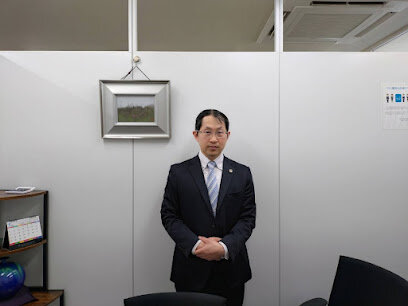Best Juvenile Law Lawyers in Japan
Share your needs with us, get contacted by law firms.
Free. Takes 2 min.
Or refine your search by selecting a city:
List of the best lawyers in Japan
About Juvenile Law in Japan
Juvenile Law in Japan is designed to address legal issues pertaining to individuals who are under the age of 20. The primary aim of Juvenile Law is rehabilitation and education rather than punishment, ensuring that young offenders are guided towards better paths in life. The Japanese juvenile justice system emphasizes guidance over retribution, often involving family courts and specialized facilities for training and correction.
Why You May Need a Lawyer
Individuals may find themselves in need of legal advice in Juvenile Law for various reasons, including:
- When a minor is accused of a crime: If your child is alleged to have committed a crime, a lawyer can help navigate the legal process and provide a defense strategy.
- Issues with child welfare: Legal help may be needed in cases involving child abuse or neglect allegations.
- Juvenile detention matters: If a minor is placed in a detention facility, understanding their rights and the legal proceedings can be facilitated by an experienced attorney.
- Legal guardianship issues: In cases of disputed guardianship or foster care, a lawyer can provide representation and advice.
Local Laws Overview
Key aspects of local laws related to Juvenile Law in Japan include:
- Juvenile Act: This is the principal legislative framework governing juvenile delinquency, outlining how young offenders should be treated and providing for family court proceedings.
- Minimum age of criminal responsibility: In Japan, the minimum age is set at 14 years old. Individuals under this age are typically treated through welfare systems, not criminal justice systems.
- Family Courts: Special courts that handle cases involving minors, focusing on privacy and rehabilitation.
- Rehabilitation programs: Comprehensive rehabilitation programs are preferred, encouraging the integration of offenders back into society.
Frequently Asked Questions
What is the age range for juvenile offenders in Japan?
Juvenile offenders are individuals under the age of 20. However, the juvenile justice system typically deals with those aged between 14 and 19.
How does the Family Court process work for juveniles?
The Family Court emphasizes privacy and focuses on rehabilitation. Proceedings are generally private, and the court employs probation officers to help guide and rehabilitate the juvenile.
What are the potential outcomes for a juvenile case?
Outcomes can range from a warning, probation, and rehabilitation program participation, to institutionalization in a juvenile training school in more severe cases.
Can a juvenile be tried as an adult in Japan?
In exceptional cases, particularly involving serious crimes, juveniles may be tried under the same proceedings as adults. This is rare and subject to rigorous scrutiny.
Do juveniles have the right to a public defender?
Yes, juveniles are entitled to legal representation, which can be provided by a public defender if they cannot afford a private attorney.
What role do parents or guardians play in juvenile proceedings?
Parents or guardians are typically involved in the process, serving as a support system and participating in rehabilitation efforts.
What is a juvenile training school?
These are special facilities focused on educating and rehabilitating juveniles who have committed offenses, aiming to reintegrate them into society.
What happens if a juvenile repeats offenses?
Repeat offenses may lead to more severe measures being taken, such as longer detention in a training school or stricter probation conditions.
Can records of juvenile offenses be expunged?
In Japan, juvenile records are more protected and not as publicly accessible as adult records, aiding in the privacy and future prospects of the individual.
How does Japan’s juvenile system compare internationally?
Japan’s system is noted for its focus on rehabilitation and education, aligning with international norms emphasizing guidance and correction over punishment.
Additional Resources
Several resources can help individuals seeking advice in Juvenile Law in Japan:
- Japanese Bar Association: Offers referrals to lawyers specializing in Juvenile Law.
- Family Court resources: Many family courts provide information and support for those involved in juvenile cases.
- Child Guidance Centers: Government-run centers offering services to support minors and their families.
- Local government offices: Provide information on child welfare and juvenile justice procedures.
Next Steps
If you need legal assistance in the field of Juvenile Law, consider the following steps:
- Research: Gain a basic understanding of your circumstances and the relevant legal framework.
- Consultation: Seek out a consultation with a specialized Juvenile Law attorney. Many firms offer initial consultations.
- Gather Documentation: Assemble any relevant legal documents, contact information, and case details that will assist your lawyer.
- Legal Representation: Retain legal representation if necessary. A lawyer can help in navigating the proceedings and advocating for the best outcomes.
- Engage in Rehabilitation: If applicable, work with legal professionals to engage in recommended rehabilitation or educational programs.
Lawzana helps you find the best lawyers and law firms in Japan through a curated and pre-screened list of qualified legal professionals. Our platform offers rankings and detailed profiles of attorneys and law firms, allowing you to compare based on practice areas, including Juvenile Law, experience, and client feedback.
Each profile includes a description of the firm's areas of practice, client reviews, team members and partners, year of establishment, spoken languages, office locations, contact information, social media presence, and any published articles or resources. Most firms on our platform speak English and are experienced in both local and international legal matters.
Get a quote from top-rated law firms in Japan — quickly, securely, and without unnecessary hassle.
Disclaimer:
The information provided on this page is for general informational purposes only and does not constitute legal advice. While we strive to ensure the accuracy and relevance of the content, legal information may change over time, and interpretations of the law can vary. You should always consult with a qualified legal professional for advice specific to your situation.
We disclaim all liability for actions taken or not taken based on the content of this page. If you believe any information is incorrect or outdated, please contact us, and we will review and update it where appropriate.
Browse juvenile law law firms by city in Japan
Refine your search by selecting a city.














